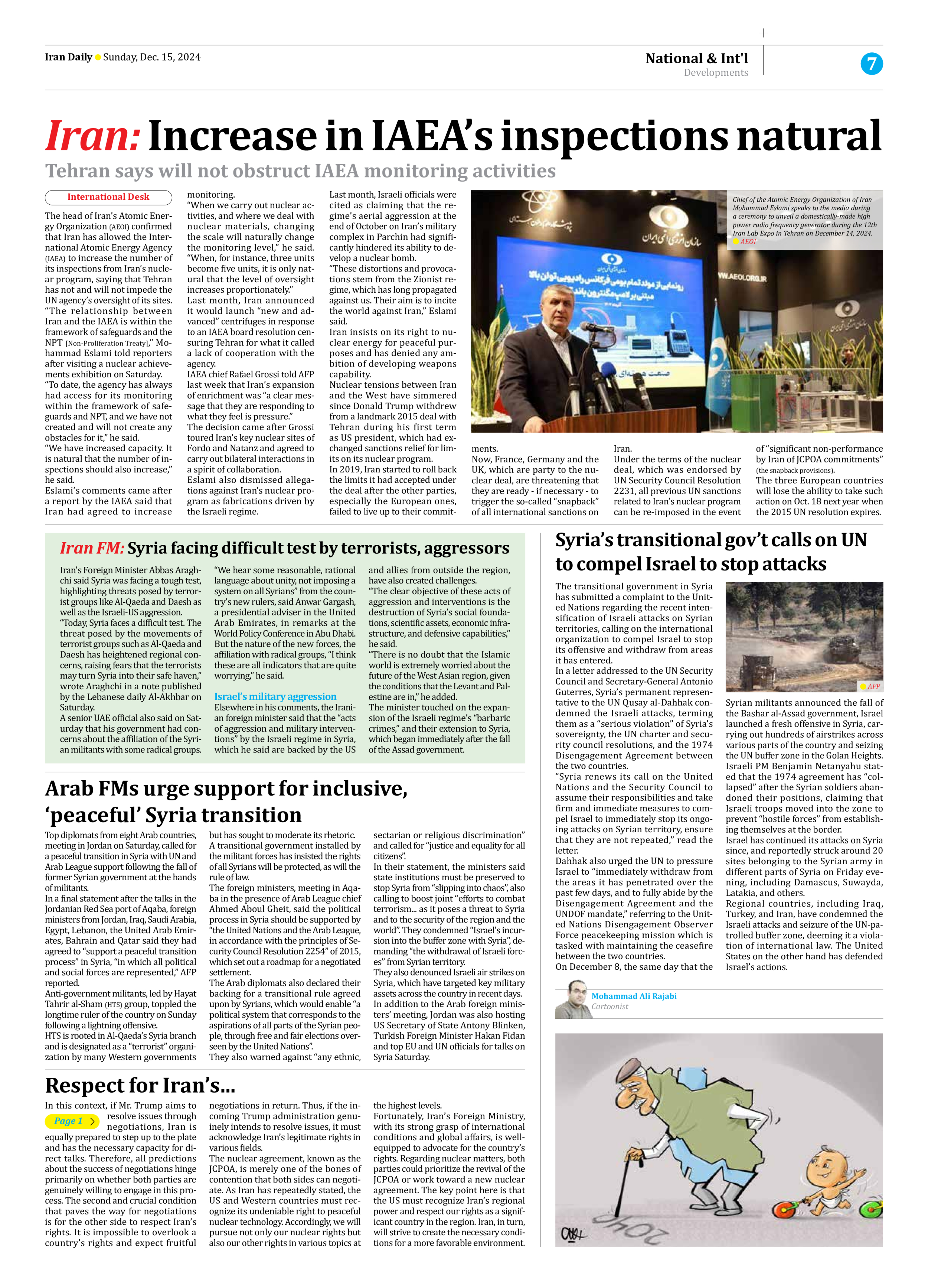
Iran: Increase in IAEA’s inspections natural
Tehran says will not obstruct IAEA monitoring activities
The head of Iran’s Atomic Energy Organization (AEOI) confirmed that Iran has allowed the International Atomic Energy Agency (IAEA) to increase the number of its inspections from Iran’s nuclear program, saying that Tehran has not and will not impede the UN agency’s oversight of its sites.
“The relationship between Iran and the IAEA is within the framework of safeguards and the NPT [Non-Proliferation Treaty],” Mohammad Eslami told reporters after visiting a nuclear achievements exhibition on Saturday.
“To date, the agency has always had access for its monitoring within the framework of safeguards and NPT, and we have not created and will not create any obstacles for it,” he said.
“We have increased capacity. It is natural that the number of inspections should also increase,” he said.
Eslami’s comments came after a report by the IAEA said that Iran had agreed to increase monitoring.
“When we carry out nuclear activities, and where we deal with nuclear materials, changing the scale will naturally change the monitoring level,” he said. “When, for instance, three units become five units, it is only natural that the level of oversight increases proportionately.”
Last month, Iran announced it would launch “new and advanced” centrifuges in response to an IAEA board resolution censuring Tehran for what it called a lack of cooperation with the agency.
IAEA chief Rafael Grossi told AFP last week that Iran’s expansion of enrichment was “a clear message that they are responding to what they feel is pressure.”
The decision came after Grossi toured Iran’s key nuclear sites of Fordo and Natanz and agreed to carry out bilateral interactions in a spirit of collaboration.
Eslami also dismissed allegations against Iran’s nuclear program as fabrications driven by the Israeli regime.
Last month, Israeli officials were cited as claiming that the regime’s aerial aggression at the end of October on Iran’s military complex in Parchin had significantly hindered its ability to develop a nuclear bomb.
“These distortions and provocations stem from the Zionist regime, which has long propagated against us. Their aim is to incite the world against Iran,” Eslami said.
Iran insists on its right to nuclear energy for peaceful purposes and has denied any ambition of developing weapons capability.
Nuclear tensions between Iran and the West have simmered since Donald Trump withdrew from a landmark 2015 deal with Tehran during his first term as US president, which had exchanged sanctions relief for limits on its nuclear program.
In 2019, Iran started to roll back the limits it had accepted under the deal after the other parties, especially the European ones, failed to live up to their commitments.
Now, France, Germany and the UK, which are party to the nuclear deal, are threatening that they are ready - if necessary - to trigger the so-called “snapback” of all international sanctions on Iran.
Under the terms of the nuclear deal, which was endorsed by UN Security Council Resolution 2231, all previous UN sanctions related to Iran’s nuclear program can be re-imposed in the event of “significant non-performance by Iran of JCPOA commitments” (the snapback provisions).
The three European countries will lose the ability to take such action on Oct. 18 next year when the 2015 UN resolution expires.







